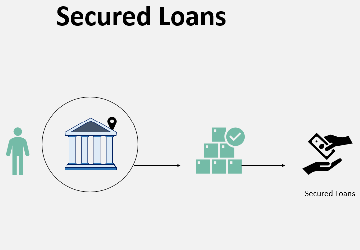
Building Credit: Strategies for Young Adults Starting Out
Establishing credit is a pivotal step for young adults aiming to create a robust financial foundation. A solid credit score unlocks numerous economic opportunities, such as obtaining loans, leasing apartments, and securing employment. Here are some effective strategies for young adults building credit and initiating their credit history.

Understanding Credit and Its Importance
What is Credit?
Credit signifies your capacity to borrow funds and repay them promptly. It is encapsulated in your credit score, which lenders utilize to evaluate your creditworthiness.
Why is Building Credit Important?
Building credit is crucial because it:
- Young adults are building credit to access more favourable loan interest rates.
- Facilitates renting apartments or purchasing homes.
- Employers frequently review it during the hiring process.
Credit Strategies for Beginners
Pay Bills on Time
One of the most impactful credit strategies for beginners is ensuring timely bill payments. Late payments can detrimentally affect your credit score. Set up alerts or automatic payments to ensure punctuality.
Keep Credit Utilization Low
Credit utilization refers to the ratio of your credit card balances to your credit limits. For young adults building credit, it's essential to maintain this ratio below 30%; this demonstrates responsible credit management to lenders.
Avoid Applying for Multiple Credit Accounts
When starting a credit history, refrain from applying for numerous credit accounts. Each application results in a hard inquiry, potentially lowering your credit score. Concentrate on effectively managing one or two credit accounts before seeking additional ones.
Starting Credit History
Open a Credit Card
One of the most prevalent methods for young adults to build credit is to acquire a credit card. Here's how you can do it:
- Apply for a secured credit card if you need more credit history.
- Utilize the credit card for minor purchases and fully settle the monthly balance.
Become an Authorized User
Another effective strategy for young adults building credit is becoming an authorized user on a family member's credit card; this enables you to benefit from the primary cardholder's exemplary credit habits.
Monitoring and Managing Your Credit
Regularly Check Your Credit Report
Young adults building credit should consistently review their credit reports to ensure accuracy and identify any discrepancies. You are entitled to a free annual report from the three major credit bureaus.
Dispute Inaccuracies
If you detect inaccuracies in your credit report, dispute them without delay. This step is crucial for young adults building credit to uphold a commendable credit score.
Long-Term Credit Strategies
Build a Mix of Credit Types
As you become more adept at managing credit, consider diversifying your credit portfolio with various types of credit, such as credit cards, instalment loans, and retail accounts; this can enrich your credit profile and exhibit your ability to manage diverse credit types.
Keep Older Accounts Open
The length of your credit history influences your credit score. Young adults building credit should retain older accounts, even inactive ones, to sustain a prolonged credit history.
Utilizing Rent Payments
Reporting Rent Payments
Reporting rent payments can be a strategic initiative for young adults building credit. Several services facilitate reporting rent payments to credit bureaus, establishing a payment history favourably influencing your credit score.
Negotiating with Landlords
Engage with your landlord about reporting your rent payments. Many property management companies are amenable to reporting on-time payments, which can considerably enhance your credit profile.
Secured Loans as a Credit-Building Tool
Applying for a Secured Loan
A secured loan, backed by collateral, is another productive strategy for young adults building credit. Secured loans often have lower interest rates and are more accessible if you have a limited credit history.
Managing Secured Loans
To efficaciously use a secured loan to build credit:
- Make Regular Payments: Ensure all payments are made punctually.
- Monitor Loan Terms: Comprehend the terms and conditions to avert penalties.
- Use for Essential Purchases: Utilize the loan for necessary acquisitions to eschew unnecessary debt.

Credit-Building Programs
Joining a Credit Union
Credit unions often offer credit-building programs tailored to young adults. These programs may encompass secured credit cards, credit-builder loans, and financial education resources, providing comprehensive support for young adults building credit.
Participating in a Credit Builder Loan
Credit builder loans are explicitly designed to assist individuals in establishing credit. These loans hold the borrowed amount in a savings account while you make payments. The funds are released upon completion, and you've cultivated a positive payment history.
Financial Literacy and Education
Enrolling in Financial Education Courses
Enhancing financial literacy is paramount for young adults building credit. Enroll in financial education courses that cover topics such as budgeting, saving, and credit management. These courses can impart valuable knowledge and skills to manage credit effectively.
Utilizing Online Resources
Numerous online resources, including webinars, articles, and financial planning tools, are available to help young adults build credit and comprehend the nuances of credit management. Leveraging these resources can significantly amplify your financial acumen.
Exploring Alternative Credit Data
Utility and Telecom Payments
Alternative credit data, such as utility and telecom payments, can be reported to credit bureaus. For young adults building credit, ensuring timely payment of these bills can assist in creating a positive credit history.
Subscription Services
Some services facilitate reporting subscription payments (e.g., Netflix, Spotify) to credit bureaus. By ensuring these payments are made punctually, young adults building credit can further enhance their credit profiles.
Seeking Professional Advice
Consulting Financial Advisors
Engaging with a financial advisor can provide bespoke strategies for young adults building credit. Advisors can offer insights into credit management, loan consolidation, and long-term financial planning.
Joining Financial Planning Workshops
Participate in workshops and seminars focused on credit building and financial planning. These events can provide practical tips and strategies to help you navigate the intricacies of credit management.
Utilizing Technology for Credit Management
Credit Monitoring Apps
For young adults building credit, credit monitoring apps can help track their scores and receive alerts about changes. These apps provide insights into their credit health and tips for improvement.
Budgeting Tools
Numerous digital tools and apps assist with budgeting and financial planning. These tools can help young adults build credit, maintain financial discipline, and achieve their credit-building goals.
Conclusion
Building credit is vital for young adults embarking on their financial journey. By adhering to these credit strategies for beginners, you can establish a solid credit history and position yourself for future financial triumphs. Consistency and prudent credit management are paramount for young adults building credit and maintaining a favourable credit score over time.





